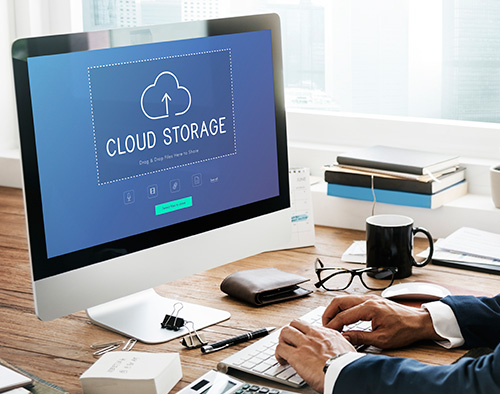HOW IS SOFTWARE-AS-A-SERVICE (SaaS) TREATED UNDER STATE TAX LAWS?
A very important and often misunderstood area in the sales tax arena is the taxability of cloud-computing, cloud-based services, etc., collectively often referred to as Software-as-a-Service (or SaaS). The moniker alone is enough to start the state tax conversation down an interesting path.
The Basics
When we work with clients to determine how something should be taxed, we start with a few basic questions and then work from there.
Has nexus has been created?
This includes looking at both the physical presence as well as an economic presence. Following the U.S. Supreme Court’s June 2018 ruling in South Dakota v. Wayfair, many states enacted economic nexus statutes which require sellers to collect and remit sales tax in those states based on sales or transactional thresholds. In this process we also look at when nexus was created based on physical presence or economic nexus.
Is the product taxable?
Once nexus is established, the sale of tangible personal property by a retailer to a customer in a given state is generally taxable. We start there, and then review the transaction to see if there are any exemptions that would cause the sale of the property to not be taxable.
Certain services are taxable. How does the state treat services?
We also look to whether, after nexus has been established, the taxpayer is selling any taxable services in the state. Many services are straightforward and are clearly either taxable or not. However, services such as data processing and information services are some of the interesting “catch-all” services now considered taxable by some states.


The Complications
As we think about the taxability of SaaS, we must go through those various steps in the analysis. The nexus question may (or may not) be clear. What about the cloud-based services themselves? Is the business selling software (it’s in the abbreviation after all—Software-as-a-Service)? If so, how does a particular state tax software? Is it tangible?
The answer is, it depends.
- Most states consider pre-written software to be tangible personal property when delivered on a tangible medium, such as a disk.
- If the software is downloaded electronically, for many states it is not considered tangible and is exempt.
- In some states, prewritten software is taxable no matter how it is delivered.
Is SaaS prewritten software, or is it a service?” Does it fall under a category like data processing or information services? It depends on exactly what it is, and how the state might interpret it.
- More than 20 states impose sales tax on the SaaS revenue stream, including Texas, New York, Massachusetts, Pennsylvania, Ohio and Washington.
- There are also several states which currently do NOT impose sales tax the SaaS revenue stream, including California, Florida and Georgia.
- Some states have not officially expressed an opinion on cloud-computing at all.
- One of the most interesting examples is Illinois, which doesn’t tax the SaaS revenue stream (assuming the software meets certain tests), but the city of Chicago has its own tax on the revenue stream.
The Documentation
As we work with clients, we recommend they work with a firm such as ours to analyze and document their situation as accurately as possible within the current guidance available on a state-by-state basis (starting with the company’s largest states).
We start with nexus, and then review the state’s position on taxability of software and services and determine where the revenue item most properly falls. It’s rare for a company to need a true 50 state tax detailed study. Even for larger companies, we can often get to 80 percent of the exposure areas by looking at 20 or fewer states. And for smaller companies, it is often 10 or fewer states.
As with almost everything we do for clients, documentation is key. It’s important to be able to demonstrate why a position was taken and the existing authority for taking it.
Finally, we run into situations where companies want the “quick answer!” But SaaS and its lesser known counterparts—IAAS (infrastructure as a service) and PAAS (platform as a service)—are not “one-size fits all” products, so the answers from the quickie charts provided by software products may often be incomplete or may not truly address the company’s specific needs.
Depending on the specifics in a company’s contract, there may be some amount of interpretation involved in the question of taxability. We’ve seen clients that appear to be true SaaS upon first glance, but really end up being information services or even data processing, which may have different tax ramifications. Bottom line, it’s not always as straightforward as it looks. Contact us for more information.

















